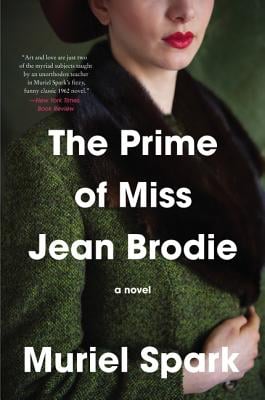APS TOGETHER
Day 10
Ch. 6, pp. 123-137 (The End)
October 10, 2020 by Sarah Shun-lien Bynum
The economy of her method: at the end of Chap 5, physical details like the bicycle boys and the tram-car stop tell us that we’ve completed the temporal lap and arrived back at the novel’s opening scene. An elegant way to re-introduce Joyce Emily in Chap 6
“One of Joyce Emily’s boasts was that her brother at Oxford had gone to fight in the Spanish Civil War.” He would have been among the 4000 Brits, including George Orwell, who joined the anti-Franco forces. See also Colin Firth in “Another Country.”
https://www.bbc.com/news/uk-13937616
Joyce Emily, Mary Macgregor, Miss Brodie: so many sacrifices for such a short novel.
Sandy “wondered to what extent it was Miss Brodie who had developed complications throughout the years, and to what extent it was her own conception of Miss Brodie that had changed.” Good question.
If you wondered in Ch 2 how Sandy’s thoughts on groups/fascisti might relate to her future as a nun, Spark hasn’t forgotten you: "she had entered the Catholic Church, in whose ranks she had found quite a number of Fascists much less agreeable than Miss Brodie.”
“She left the man and took his religion”: Sandy’s difficult love for Miss Brodie leads her to Teddy Lloyd which leads her to Catholicism, a movement that reminds me of Charles Ryder’s journey from Sebastian to Julia to Catholicism in Brideshead Revisited.
“Her mind was as full of his religion as a night sky is full of things visible and invisible.” Spark’s vision of Catholicism begins to emerge as one of vastness, mystery, beauty. A huge & glimmering cosmos that shrinks our human problems down to size.
Sandy, “thinking that it was not the whole story.” Miss B, “trying quite hard to piece together a whole picture.” Resisting wholeness, Spark builds her novel out of catchphrases, snippets, echoes, epithets, bits of poetry & song, flashes forward & back.
Stephen Schiff: “[Spark] lays out the jigsaw pieces over and over…but refuses to cough up the final piece—she trusts her reader to catch on without it. Hence, we finish ‘TPOMJB’ having been told everything about Sandy’s betrayal except why it happens.”
Sandy/Sister Helena clutching the bars of the grille more desperately than ever: what is she yearning to escape? Or hold on to? It’s an image that lingers, full of disturbance and mystery.
Spark in TNY, 5/93: “You have to live with the mystery. That’s the answer in my books."
“There was a Miss Jean Brodie in her prime”: One final repetition, and Sandy’s answer now echoes—almost unbearably—with the accumulation of time and consequences and loss.
